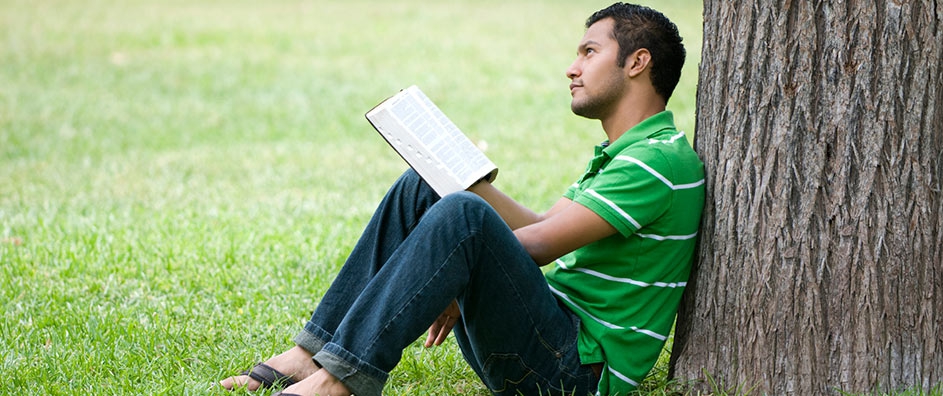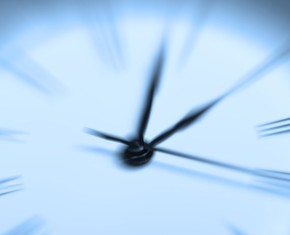The views expressed in our content reflect individual perspectives and do not represent the authoritative views of the Baha'i Faith.
Do you think of yourself as a liberal? (I don’t mean politically—I mean spiritually.)
In some places across the Western world, the word “liberal” has somehow turned into a term with negative connotations. Because of the ugly, contentious political divide in so many nations, which pits “liberal” factions against “conservative” factions in a never-ending culture-war conflict, we’ve now managed to marginalize and stigmatize a few perfectly good words, each of them with a proud heritage. Just for review, here’s the Webster’s Dictionary definition of the word:
Liberal: adj., [fr. liber, Latin, meaning free]—1. Generous 2. Ample; abundant 3. Not literal or strict 4. Tolerant; broad-minded 5. Favoring reform or progress.
The Baha’i teachings use the word liberal often, usually in a very positive way, in describing free and progressive governments, modern education and an overall approach to religion:
It behoveth every king to be as bountiful as the sun, which fostereth the growth of all beings, and giveth to each its due, whose benefits are not inherent in itself, but are ordained by Him Who is the Most Powerful, the Almighty. The King should be as generous, as liberal in his mercy as the clouds, the outpourings of whose bounty are showered upon every land, by the behest of Him Who is the Supreme Ordainer, the All-Knowing. – Baha’u’llah, Gleanings from the Writings of Baha’u’llah, pp. 236-237.
The true, liberal, religious spirit is more in evidence in America than in Europe… The American people are as a whole, a religious people. They investigate the Reality, and are free from the fetters of prejudice. – Abdu’l-Baha, Star of the West, Volume 7, p. 13.
…Baha’u’llah in all his Tablets has made it incumbent upon all to study sciences and arts, encouraging everyone in the acquirement of learning and a liberal education for the eternal happiness of mankind lies in these (things). – Ibid., p. 103.
Baha’is tend towards liberalism, although I’m not using the word politically here at all. In fact, Baha’is assiduously avoid partisan politics and refrain from identifying themselves with one political faction or another. Instead, I’m using the word in its traditional, Webster’s way, which means that Baha’is see religion and society as evolving, progressive, abundant—and definitely not literal.
If you’re liberal in that good old-fashioned sense of the word, you tend to accept things in an open, broad-minded way. You give people the benefit of the doubt; have tolerant views of their beliefs; and feel that they have the right to believe as they see fit. That’s probably why some scholars and students of religion have categorized the Baha’i Faith as a “new religious movement,” as a part of the long tradition of religious liberalism.
That term—religious liberalism—typically includes the various movements, denominations and new belief systems that emerged out of liberal Protestantism in the mid-1800s. Those movements, depending on who compiles the list, often include the Quakers, the Transcendentalists, the Theosophists and occasionally the Baha’is. The Baha’i Faith definitely did not emerge from a Protestant background—instead, it germinated in the mystical Sufi tradition in Persia in the mid-1800s—but for some reason, people who study these things and write books on the subject include the Baha’i Faith under the umbrella group of “liberal religions.” One well-known book on the topic, Leigh Eric Schmidt’s Restless Souls, for example, includes an extensive chapter on the Baha’is, citing the Faith as part of the long tradition of religious liberalism.
Scholars and writers probably do that because the Baha’i principles have long advanced reformative, progressive ideals like the unity of humanity, the equality of men and women, universal human rights, the agreement of science and religion, and the essential oneness of all Faiths. Or they may include the Baha’i Faith because it adapts well to modernity by stressing liberal interpretations of religious revelation rather than authoritarian dogma, orthodoxy and fundamentalism.
The Baha’is generally end up on “religious liberalism” lists, though, because of one main Baha’i principle—the independent investigation of truth. That major Baha’i belief probably accounts for much of the Faith’s reputation for liberalism. Baha’is don’t proselytize or force their Faith on others. Instead of insisting on the truth of their own beliefs, Baha’is ask everyone to make that determination for themselves—to search and decide independently.
At its heart, this principle defines the new spirituality in the world: you get to decide what you believe—not tradition or inheritance or peer pressure or clergy or culture. The Baha’i teachings say you have the intelligence, the insight and the independent authority to make up your own mind in spiritual matters:
God has not intended man to imitate blindly his fathers and ancestors. He has endowed him with mind, or the faculty of reasoning, by the exercise of which he is to investigate and discover the truth, and that which he finds real and true he must accept. He must not be an imitator or blind follower of any soul. He must not rely implicitly upon the opinion of any man without investigation; nay, each soul must seek intelligently and independently, arriving at a real conclusion and bound only by that reality. – Abdu’l-Baha, The Promulgation of Universal Peace, p. 287.
So as you think about humanity’s new sense of spirituality, which arises from the contemporary idea that we all have free choice when it comes to religious belief, remember that it came originally from the teachings of Baha’u’llah. He intended, with the groundbreaking Baha’i principle of the independent investigation of truth, to remove the old religious shackles of blind imitation and prejudice:
Tear asunder, in My Name, the veils that have grievously blinded your vision, and, through the power born of your belief in the unity of God, scatter the idols of vain imitation. Enter, then, the holy paradise of the good-pleasure of the All-Merciful. …every man hath been, and will continue to be, able of himself to appreciate the Beauty of God, the Glorified… For the faith of no man can be conditioned by any one except himself. – Baha’u’llah, Gleanings from the Writings of Baha’u’llah, p. 142.
Next: What Will Your Obituary Say about Your Spirit?
You May Also Like
Comments

















"We should not be in a hurry when we announce the message to the public and we should be careful to present the teachings in their entirety and not to alter them for the sake of others. Allegiance to the Faith cannot be partial and half-hearted. Either we should accept the Cause without any qualification whatsoever or cease calling ourselves Bahá'ís. The new believers should be made to realize that it is not sufficient for them to accept some aspects of the teachings and reject those which cannot suit their mentality in order to become fully recognized and ...active followers of the Faith."
(Shoghi Effendi, Directives from the Guardian, p. 11)